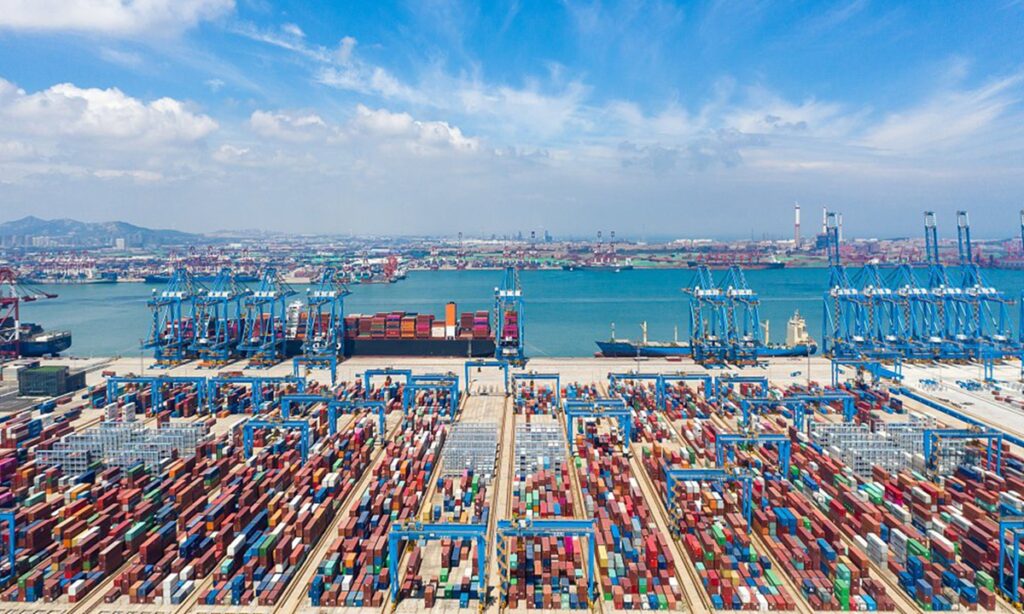Policymakers have measures at their disposal to address risks: experts
Xi Jinping, general secretary of the Communist Party of China (CPC) Central Committee, on Monday presided over a top meeting to address the current economic situation and make arrangements for economic work in the second half of the year, calling for greater efforts to ensure improvement in quality and “reasonable growth” amid new challenges.
The meeting of the Political Bureau of the CPC Central Committee pointed out that the economic situation faces new challenges due to insufficient domestic demand, difficulties for some enterprises, risks in crucial sectors, and a complex and severe external environment; however, the Chinese economy still has vast potential and the long-term positive fundamentals remain unchanged, according to the Xinhua News Agency.
After a smooth transition in epidemic prevention and control, economic recovery is a process of “wave-like” development and tortuous progress. Experts said the meeting acknowledged the achievements made in the first half of the year, and the government is not hiding the problems. While challenges remain, policymakers still have many policy measures at their disposal to address risks and ensure steady economic recovery, and China’s economy will still be a locomotive for the global economy, analysts said.
‘Positive judgment’
The meeting called for carrying out macroeconomic regulation with precision and force, strengthening counter-cyclical regulation, and making more policy options available.
Currently, China’s economy is facing new difficulties and challenges, which mainly arise from insufficient domestic demand, difficulties in the operation of some enterprises, risks and hidden dangers in key areas, as well as a grim and complex external environment, it said.
It is necessary to stick to a proactive fiscal policy and a prudent monetary policy, extend, optimize, improve and ensure the implementation of tax and fee reductions, and give full play to the role of quantitative and structural monetary tools, it said.
Strong support will be given to scientific and technological innovation, the real economy, and the development of micro, small and medium-sized enterprises, according to the meeting.
The RMB exchange rate shall be kept generally stable at an appropriate and balanced level, the meeting noted, pledging efforts to invigorate the capital market and boost investor confidence
“The meeting has given a positive judgment on the current economic situation,” Wang Peng, a research fellow from the Beijing Academy of Social Sciences, told the Global Times on Monday.
Wang said that the top meeting has set the overall tone for economic development in the second half of the year, which is to maintain stability while seeking progress, by further deepening, optimizing and expanding the relevant reforms. The goal is to promote the transformational development of the economy and society to achieve high-quality development, he said.
The meeting has shown that China is recovering steadily as the country’s development has shown resilience, especially after its epidemic prevention efforts, but on the other hand, some problems have also emerged, such as insufficient domestic demand, which shows the meeting has an accurate reading of our overall economic development, Wang added.
The top meeting is not shying away from tough economic conditions, and clearly revolves around the most significant contradiction in the process of economic development, which is the issue of insufficient domestic demand, Li Changan, a professor at the Academy of China Open Economy Studies of the University of International Business and Economics, said on Monday.
Another notable highlight of this high-level meeting is the emphasis on stimulating new development momentum through reforms, Li said, noting that “based on China’s historical experience of reform and opening-up, it is evident that reforms have always been crucial and a major driving force for the long-term development of the Chinese economy.”
“Thus, this meeting once again stresses the importance of reforms, including reforming government regulations on investment and financing systems and promoting certain reforms related to the development of the private economy, as well as adjustments to institutional mechanisms,” Li said.
The Central Committee of the CPC has held a symposium with non-CPC personages to seek opinions and suggestions on the country’s current economic situation and economic work for the second half of the year.
President Xi presided over the symposium and delivered an important speech on July 21.
To do the economic work well for the second half of the year, the general principle of pursuing progress while ensuring stability should continue to be followed, Xi said.
Efforts should be made to fully and faithfully apply the new development philosophy on all fronts, accelerate the building of a new pattern of development, comprehensively deepen reform and opening up, intensify macro regulation, expand domestic demand, boost confidence and prevent risks, he said.
He also stressed pushing for the continued improvement of the economic performance, endogenous driving force and social expectations, continuously defusing risks and hidden dangers, and effectively upgrading and appropriately expanding China’s economic output.
Boosting domestic demand
How to boost domestic consumption is undoubtedly the main challenge that needs to be addressed in the latter half of this year and for a considerable period in the future, Chinese experts said.
The meeting came after China last week released its half-year economic development results, which showed growth of 5.5 percent. Although the data fell short of expectations, it still stands ahead of most of the world’s major economies to become the locomotive of global growth.
To bolster the nation’s continuous recovery, Chinese policymakers, ranging from the State Council and top economic planner to the commerce ministry and the central bank, have been intensively launching stimulus measures to boost consumption and rejuvenate growth momentum.
In the latest move, the Ministry of Commerce and 12 other departments on July 18 promoted home consumption, aimed at improving quality, creating innovative shopping scenarios, improving consumption conditions and optimizing the consumption environment, part of the move to further boost consumption.
The top meeting held on Monday also emphasized that it is necessary to actively expand domestic demand, and give full play to the basic role of consumption in driving economic growth. Specifically, it vowed to boost consumer spending on automobiles, electronics, and home furnishing, and promote the consumption of services such as sports, leisure, and cultural tourism.
In responding to the weak demand, the government is strengthening counter-cyclical macro policies, including policy reserve, which is a good tonic for boosting domestic demand, experts said. Details of such moves can be found from the briefing of Monday’s meeting, including accelerating the issuance and use of special local government bonds, said Zhu He, research fellow of the CF40 Institute on Monday.
The structural adjustment of fiscal expenditure seems to be one of the priorities of the next stage of macro policy, the expert added.
To further lift the economy, the meeting also pledged to promote the secure development of artificial intelligence, and encourage platform companies achieve standardized, healthy, and sustainable development.
The meeting looks to effectively enhance the core competitiveness of state-owned enterprises while optimizing the business environment for private enterprises.
On Monday, the National Development and Reform Commission (NDRC), China’s top economic planner, issued a notice saying it would further build up relevant mechanisms and improve the policy environment to spur the development of private investment, amid the nation’s all-round efforts to spur the private economy, a major pillar of the world’s second largest economy.
(Global Times)




